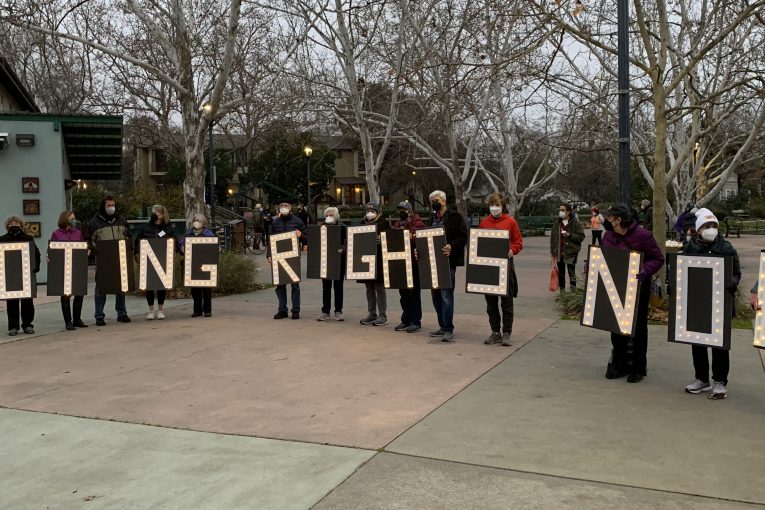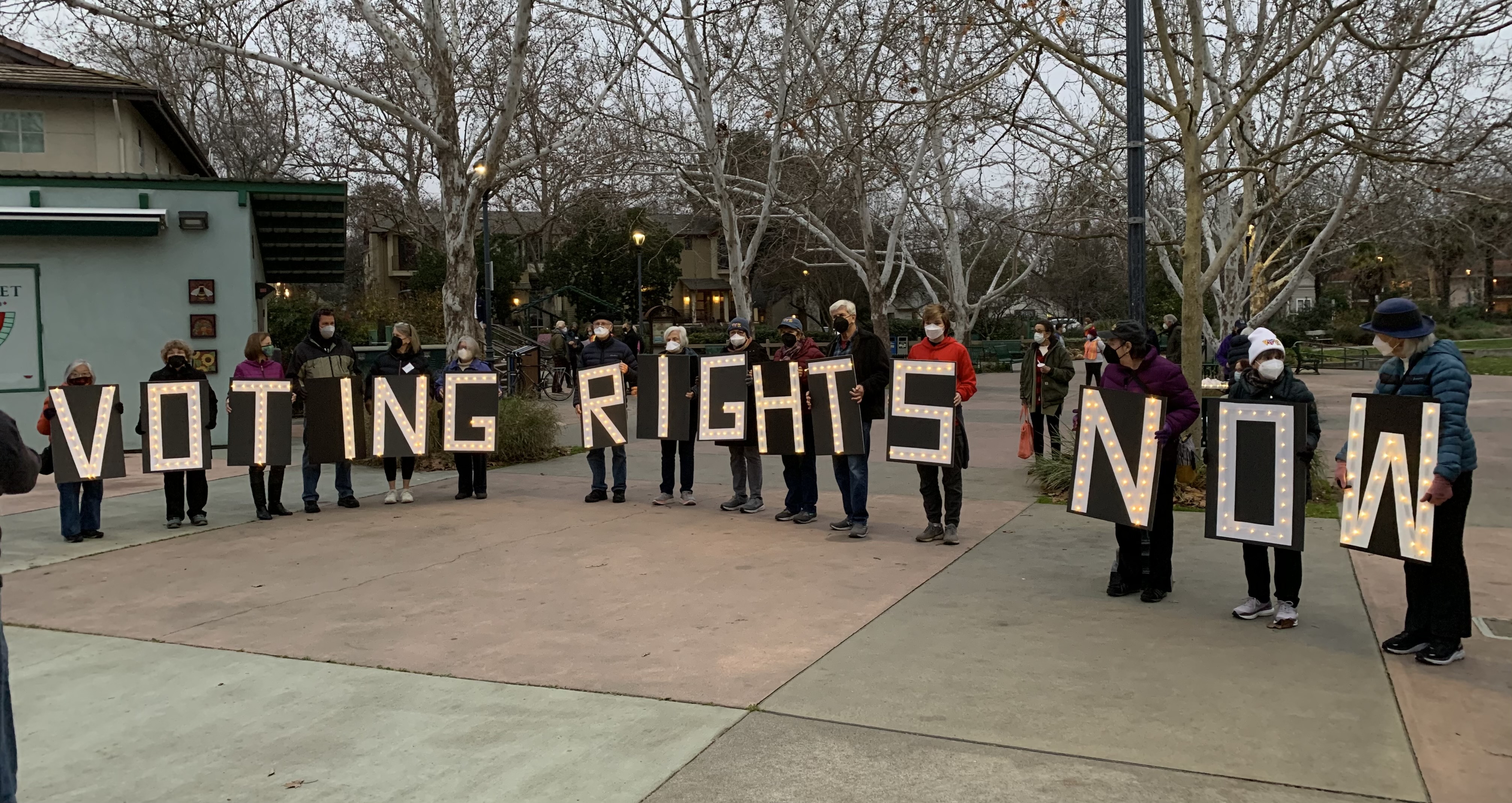
 By Emma Kantor & Sofia Leguria
By Emma Kantor & Sofia Leguria
MEMPHIS, TN – In early February of this year, Pamela Moses, the founder of the Memphis chapter of Black Lives Matter, was sentenced to six years and one day in prison after attempting to register to vote in 2019, despite having prior felony convictions.
Moses believes she is a victim caught in the midst of complicated Tennessee voting laws.
However, according to New York Times author Edwardo Medina, “Under Tennessee law, people convicted of certain felonies, including tampering with evidence, lose their voting rights forever.”
In 2015 Moses had 16 convictions, including misdemeanor counts of perjury, stalking, and theft under $500.
She claims that she only pleaded guilty to these crimes to avoid jail time, and did not have the funds to pay for her lawyer.
Between 2015 and 2018 Moses illegally voted in six elections after her felony conviction.
However, Moses’ conviction notice was never sent to the election commission so she was on their voting rolls for those six elections.
The Shelby County Election Commission sent a letter to the district attorney stating that they admit it was an error on the court’s behalf, for not sending a conviction notice.
Several years later, in Summer 2019, Moses wanted to run for the Mayor of Memphis or at least vote in the upcoming election and was denied this interest by election officials because of her prior convictions.
Moses claims that she was not made aware that she would lose the right to vote when she entered a guilty plea and was ultimately convicted of these felonies in 2015.
She also was skeptical about the duration of her probation term as she was under the impression she legally could vote once her probation term was over.
Due to this confusion and skepticism, she directly contacted a judge in September 2019 about her probation term, who told her that it was in fact active and ongoing. Yet when she later went to the probation office she was told by a probation officer that her felony probation was over.
The probation officer proceeded to sign off on her voting rights restoration form which Moses then submitted to election officials—24 hours later, it was evident that an error had been made by the probation officer.
The initial judge who had told Moses that her probation period was still active was correct and thus Moses did not have the right to vote.
Despite this confusion, Moses was then convicted of consenting to a false entry on official election documents in November 2019
Two months later, in Jan. 2020 she was sentenced to six years and one day in prison.
During the sentencing proceeding, Moses told Judge W. Mark Ward, “All I did was try to get my right to vote back the way people at the election commission told me.”
He responded to her, “You tricked the probation department into giving you a document saying that you were off probation.”
Moses’ lawyer, Bede Anyanwu stated, “It was the probation department that gave the letter that she had expired her sentence, so she’ll be prosecuted for a mistake that was made by the state.”
Moses wrote a Memphis TV news station from jail and stated that she “relied on the election commission because those are the people who were supposed to know what you’re supposed to do… and I found out that they didn’t know.”
Blaire Bowie, a lawyer who assisted on Moses’ case, said that Tennessee has complex voting laws that have a “disparate impact on Black people.”
In October a white Republican voter was charged with two counts of voter fraud. He forged his dead wife’s signature on her absentee ballot.
But, unlike Moses, he was only sentenced to one year of probation, according to The Reno Gazette-Journal.
Another white Republican man in Ohio did the same thing with his father’s absentee ballot in the 2020 election. He was charged with illegal voting and served three days in jail.
However, according to the New York Times, Hervis Rogers of Houston also voted illegally, and faced up to 40 years in prison. Similar to Moses, he voted while he was still on parole.
The consequences of felony convictions on the right to vote remain criticized by many voting activists. Specifically, The National Association for the Advancement of Colored People has stated that “there are two criminal justice systems in America.”

Voting when one isn’t allowed to is not an act of violence by any standard. How could anyone get six years in prison for this?
I don’t understand why the article details her misdemeanor convictions which she states she didn’t do, but does not describe what felony convictions she had and whether she thought she did those.
I am fine with felons voting, even from prison if they want. I do, however, think they shouldn’t be allowed to visit Yosemite.